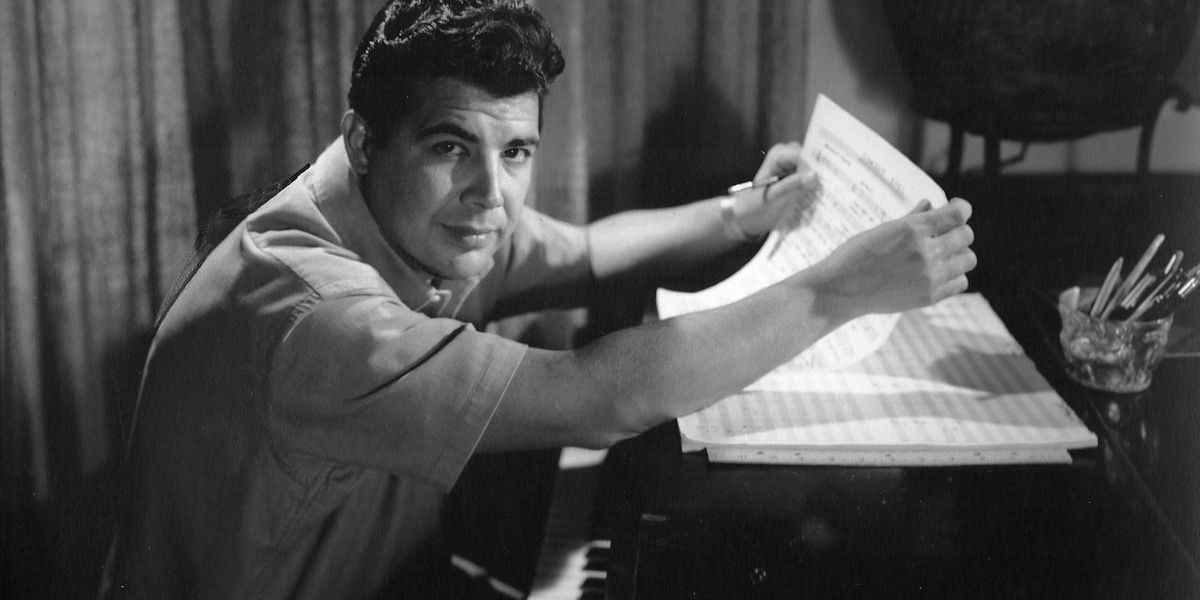The situation of pianist Joe Castro seems like it came out of one of those low-budget black and white film noir movies about jazz musicians during the mid-20th century. It’s kind of a twist on the Pal Joey plot, the ur-source for many of the plots of these flicks about a beautiful femme fatale who wants the musician all to herself. The real-life Castro was a talented player recognized by his peers. Rather than take the hard road that was the fate for so many of his jazzbos, Castro hooked up with ultra-rich tobacco heiress Doris Duke. She built home studios at her residences, Falcon Lair in California and Duke Farms in New Jersey. The pair would record sessions with some very talented friends such as Chico Hamilton, Teddy Wilson, Stan Getz, and Zoot Sims. A collection of that material, the boxed set Lush Life – A Musical Journey, was released to critical acclaim back in 2015.
Passion Flower – For Doris Duke, the second boxed set of recordings from the Joe Castro collection, contains home-based jam sessions, studio tapings from Castro’s Atlantic Records releases, and recordings done under the sponsorship of Clover Records, a jazz label that Duke and Castro founded and briefly ran. The quality of the music is consistently smooth and inviting. Castro is always in the groove, and the other players in the pocket with him. There’s a uniformity of taste on these six CDs despite their different sources, styles, and periods from which they originally emerged.
The first record album, Trios 1955-1956 – The Artist’s Choice, introduces Castro on the piano in various groupings with distinguished bassists Paul Chambers, Red Mitchell, and Leroy Vinnegar and well-respected drummers Philly Joe Jones, Lawrence Marable, and Jimmy Pratt. They swing through a variety of jazz standards, including the Gershwin brothers’ “They Can’t Take That Away From Me”, Duke Ellington’s “It Don’t Mean a Thing”, and W.C. Handy’s “St. Louis Blues”. The standout track on this disc is a bouncy take on Fats Waller’s “Black and Blue (What Did I Do to Be So Black and Blue)” that blissfully accents the rhythms over the melody.
Pianist Paul Bley is the focus of the first ten tracks from disc two, Joe Castro’s Friends at Duke Farms 1956. Bley recorded three solo blues improvisations as well as small combo covers of such tunes as Sammy Cahn and Jules Styne’s “Time After Time” and Ann Ronell’s “Willow Weep for Me”. The next eight songs feature mostly pianist George Handy and his wife Flo both as a duo and with orchestral arrangements. The compositions have a tinge of sadness, perhaps foreshadowing the couple’s divorce in the not distant future, with lines like “a flower with a small drop of rain” setting the mood.
The third disc may be the weakest, Mood Jazz with Voices & Strings – The Atlantic Album +, (1957) perhaps because of its commercial intentions. The music is slick to a fault, hence the added smooth voices and schmaltzy string sections, despite the presence of jazz superstars trumpeter Nat Adderley and saxophonist Cannonball Adderley. However, his second one for Atlantic Records found on the fourth album, the Groove Funk Soul – The Atlantic Album + (1960), kicks butt. He’s joined by a stellar small combo that features saxophonist Teddy Edwards who blows with power, grace, and soul. The group sounds like they are having a ball.
A previously unreleased Joe Castro Trio session from 1965 The Sidewalks of New York makes up the fifth disc. Drummer Paul Motian and bassist Teddy Kotick provide a solid rhythmic foundation for which Castro could swing on one tune then get dark and bluesy the next. The three musicians give each other plenty of room to explore the material’s nuances, even on the old children’s song from which the album got its title. Nothing gets rushed, and still, the pace never dawdles.
The final disc, Remind Me, comes from a 1965-1966 project that Castro worked on for Clover Records before the label folded. Motian and Kotick play on most tracks but are joined by other artists, including Doris Duke on piano for two cuts. The upbeat “Just Squeeze Me (But Don’t Tease Me)” featuring Teddy Edwards on a bluesy tenor sax stands out as the record’s coolest cut and inspires some of Castro’s best playing.
This review is of the physical set. There’s a digital-only version that includes additional material by Kitty White for Clover Records. The six CDs here seem ample enough for all but the most completist collector.


